This manuscript workshop for Kristen Stilt’s book project, Food, Faith, and the Future of Planetary Health, is organized by Professor Justin Marceau of the University of Denver Sturm College of Law and funded by the Brooks Animal Studies Academic Network (BASAN), a project of the Brooks Institute for Animal Rights Law and Policy.
Please find biographies for the workshop participants below, in addition to those of staff from the Brooks Institute, Harvard’s Animal Law & Policy Program, and the Program for Law & Society in the Muslim World, who also will be in attendance.
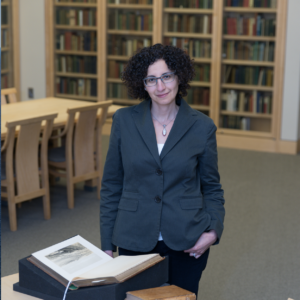
Febe Armanios is a Professor of History at Middlebury College, where she is also co-Director of the Axinn Center for the Humanities. She is a recognized expert of Middle Eastern Christianity, as well as in the growing field of Food Studies. Her research focuses on comparative religious practices between Christians and Muslims, and among Christian communities of the Middle East and Balkans, exploring everything from the veneration of saints and pilgrimages, to diverse food and fasting traditions, and comparative gender roles. She is the author of Coptic Christianity in Ottoman Egypt (Oxford University Press, 2011) and the co-author (with Boğaç Ergene) of the award-winning Halal Food: A History (Oxford University Press, 2018). Over the years, she’s published multiple articles, book chapters, and blog entries, and has also received several awards and fellowships to support her work including, most recently, from the Luce-American Council of Learned Societies Fellowship in Religion, Journalism, and International Affairs, the Fordham University Research Fellowship in Coptic Orthodox Studies, the Marion and Jasper Whiting Foundation, and the National Endowment for the Humanities. She is currently completing a book manuscript titled Satellite Ministries: The Rise of Christian Television in the Middle East, which examines the confluence between media technologies, evangelism, missionary zeal, and Middle Eastern Christianity over the past four decades. She has also begun conducting research for a book project on historical and contemporary food traditions among Christian communities in the Eastern Mediterranean.
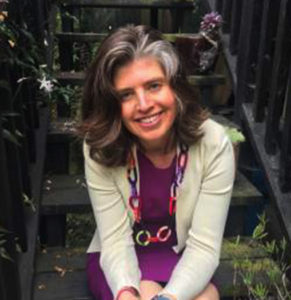
Hadar Aviram is the Thomas Miller Professor at UC Hastings College of the Law. She holds law and criminology degrees from Hebrew University of Jerusalem and a Ph.D. in Jurisprudence and Social Policy from UC Berkeley, where she studied as a Fulbright Fellow and a Regents Intern. Professor Aviram specializes in criminal justice and civil rights from a socio-legal perspective. Her first book Cheap on Crime: Recession-Era Politics and the Transformation of American Punishment (UC Press, 2015) analyzes the impact of the 2008 financial crisis on the American correctional landscape. Her second book, The Legal Process and the Promise of Justice (Cambridge University Press, 2019), is a co-edited anthology of law and society studies in the tradition of academic pioneer Malcolm Feeley. Her third book, Yesterday’s Monsters: The Manson Family Cases and the Illusion of Parole (forthcoming: UC Press 2020) is an in-depth, longitudinal examination of the California parole process through the lens of the Manson Family inmates’ parole hearing transcripts.
Professor Aviram has published on domestic violence, behavioral perspectives on policing, prosecutorial and defense behavior, unconventional family units, public trust in the police, correctional policy, criminal justice budget policy, and the history of female crime and punishment. She served as President of the Western Society of Criminology and as a Trustee of the Law and Society Association. One of the leading voices in California and nationwide against mass incarceration, Professor Aviram is a frequent media commentator on politics, immigration, criminal justice policy, civil rights, the Trump Administration, and the Mueller Report. Her popular blog California Correctional Crisis covers crime and punishment in California. She applied her expertise in criminal justice and social movements to her long-time interest in animal rights as a Visiting Fellow at the Animal Law & Policy Program from 2019-2020.
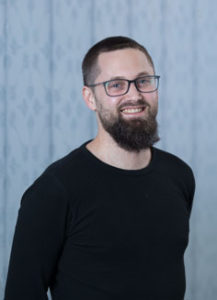
Andrew Bush is an anthropologist who studies Islamic traditions in the Kurdistan region of Iraq. His ethnographic research in Kurdistan over the last 15 years has addressed topics ranging from Islamic law to Sufi poetry, gender and sexuality, and secular politics. His work combines a close study of textual traditions in Kurdish, Persian, and Arabic with ethnographic research into the everyday lives of Muslims where those texts come to life.
Andrew holds a Ph.D. in Anthropology from Johns Hopkins University, and his research has been supported by several grants including the National Science Foundation and the Wenner-Gren Foundation for Anthropological Research. His writing has appeared in American Ethnologist, the Journal of Middle East Women’s Studies, and the Wiley-Blackwell Companion to the Anthropology of the Middle East. Andrew was a Humanities Research Fellow at New York University Abu Dhabi, where he was later Senior Lecturer, teaching courses in anthropology, law, and Islamic studies. His first bookexplores a form of religious difference that has been overlooked in the study of Islamic traditions: the difference between Muslims who seek to cultivate piety and become better Muslims, and Muslims who turn away from piety by neglecting prayer and other foundational rites. This book will published by Stanford University Press in September 2020 under the title Between Muslims: Religious Difference in Iraqi Kurdistan.
In 2019 he received a Post-Ph.D. Research Grant from the Wenner-Gren Foundation to conduct fieldwork in on questions of manhood and masculinity in different forums of Islamic law in contemporary Iraq. Connecting the work of Fatwa Councils in Kurdistan to the work of personal status courts and the history of legal reform across Iraq, this project brings work on gender and Islamic law to bear on the study of men, and ties an anthropology of legal reforms projects to the intimate questions of marriage and divorce that punctuate everyday life.
 Maneesha Deckha is Professor and Lansdowne Chair in Law at the University of Victoria. Her research interests include animal law, critical theory, health law, bioethics, and reproductive policy. Her interdisciplinary scholarship has been funded by the Canadian Institutes of Health Research and the Social Sciences and Humanities Research Council of Canada. She also held the Fulbright Visiting Chair in Law and Society at New York University. Professor Deckha currently serves as Director of the Animals & Society Research Initiative at the University of Victoria as well as on the Editorial Boards of Politics and Animals and Hypatia. She is an inaugural fellow of the Brooks Animal Studies Academic Network at the Brooks Institute for Animal Rights Law & Policy, and is a graduate of McGill University (BA), the University of Toronto (LLB), and Columbia University (LLM). She is the author of Animals as Legal Beings: Contesting Anthropocentric Legal Orders (2021, University of Toronto Press) as well as many other publications merging the fields of animal law and critical theory.
Maneesha Deckha is Professor and Lansdowne Chair in Law at the University of Victoria. Her research interests include animal law, critical theory, health law, bioethics, and reproductive policy. Her interdisciplinary scholarship has been funded by the Canadian Institutes of Health Research and the Social Sciences and Humanities Research Council of Canada. She also held the Fulbright Visiting Chair in Law and Society at New York University. Professor Deckha currently serves as Director of the Animals & Society Research Initiative at the University of Victoria as well as on the Editorial Boards of Politics and Animals and Hypatia. She is an inaugural fellow of the Brooks Animal Studies Academic Network at the Brooks Institute for Animal Rights Law & Policy, and is a graduate of McGill University (BA), the University of Toronto (LLB), and Columbia University (LLM). She is the author of Animals as Legal Beings: Contesting Anthropocentric Legal Orders (2021, University of Toronto Press) as well as many other publications merging the fields of animal law and critical theory.
 Boğaç Ergene is Professor of History at the University of Vermont. He’s the author and co-author of Local Court, Provincial Society and Justice in the Ottoman Empire (Brill, 2003), The Economics of Ottoman Justice (Cambridge University Press, 2016; with Metin Coşgel) and Halal Food: A History (Oxford University Press, 2018; with Febe Armanios). He also edited or co-edited two books, published numerous articles in major history, law, and economic history journals. His research over the past two decades, has focused on Islamic law and legal practice and also on social and economic history in the Ottoman Empire.
Boğaç Ergene is Professor of History at the University of Vermont. He’s the author and co-author of Local Court, Provincial Society and Justice in the Ottoman Empire (Brill, 2003), The Economics of Ottoman Justice (Cambridge University Press, 2016; with Metin Coşgel) and Halal Food: A History (Oxford University Press, 2018; with Febe Armanios). He also edited or co-edited two books, published numerous articles in major history, law, and economic history journals. His research over the past two decades, has focused on Islamic law and legal practice and also on social and economic history in the Ottoman Empire.
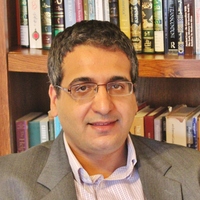 Omar Farahat is an Assistant Professor at McGill University, Faculty of Law. His areas of interest include classical Islamic law, legal theory, theology, and ethics. His current research focuses on the concepts of time, generality, and personhood, at the intersection of legal and moral theories in classical Islamic thought.
Omar Farahat is an Assistant Professor at McGill University, Faculty of Law. His areas of interest include classical Islamic law, legal theory, theology, and ethics. His current research focuses on the concepts of time, generality, and personhood, at the intersection of legal and moral theories in classical Islamic thought.
Farahat’s first book, The Foundation of Norms in Islamic Jurisprudence and Theology (Cambridge University Press, 2019) studeid the work of classical Islamic theologians and legal theorists who maintained that divine revelation is necessary for the knowledge of the norms and values of human actions. Through a reconstruction of classical Ashʿarī-Muʿtazilī debates on the nature and implications of divine speech, Farahat argues that the Ashʿarī attachment to revelation was not a purely traditionalist position, but a rational philosophical commitment emerging from debates in epistemology and theology.
Farahat’s research on Islamic legal theory and ethics has also appeared in the Journal of Law and Religion, the Journal of Religious Ethics, and Oriens, and further research is forthcoming in Journal of Arabic and Islamic Studies. Before to joining McGill, he completed his Ph.D. at Columbia University, following which he spent a year as a Research Fellow at Yale Law School. Prior to that, he obtained a dual law degree from Université Paris 1 Panthéon-Sorbonne and Cairo University, an LL.M. from Harvard Law School, and an interdisciplinary M.A. in the humanities from New York University.
 Angela Fernandez is Professor of Law at the Faculty of Law, University of Toronto, cross-appointed to the Department of History. She is the author of a book-length study on the (in)famous law of capture and first possession property law fox case Pierson v. Post, the Hunt for the Fox: Law and Professionalization in American Legal Culture (New York: Cambridge University Press, 2018). She serves as Book Review Editor (Americas) for Law and History Review. She sits on the Board of Advisors and is a Director for Animal Justice Canada, is a Fellow with the Oxford Centre for Animal Ethics, and is a member of the Brooks Animal Studies Academic Network (BASAN) with the Brooks Institute for Animal Rights, Law & Policy.
Angela Fernandez is Professor of Law at the Faculty of Law, University of Toronto, cross-appointed to the Department of History. She is the author of a book-length study on the (in)famous law of capture and first possession property law fox case Pierson v. Post, the Hunt for the Fox: Law and Professionalization in American Legal Culture (New York: Cambridge University Press, 2018). She serves as Book Review Editor (Americas) for Law and History Review. She sits on the Board of Advisors and is a Director for Animal Justice Canada, is a Fellow with the Oxford Centre for Animal Ethics, and is a member of the Brooks Animal Studies Academic Network (BASAN) with the Brooks Institute for Animal Rights, Law & Policy.
Angela has recently finished a chapter on the regulation of fox hunting in North America and an essay on a late-nineteenth century over-fishing case, The Gerring (1897), which is part of a longer co-authored book project on this case, in which the Supreme Court of Canada adopted the capture rule for wild animals, at least for fish. She is working on two essays on fish farming (one for a collection on “Green criminology” focusing on liability for fish escapes and another in an edited collection in honor of Victoria Braithwaite on the legal status of fish and feral fish), as well as a “Brooks U” installment in the Series on Fundamentals of Animal Law, “Animals as Property or Quasi-Property,” and a chapter on “Animal Law in Historical Perspective” in the Oxford Handbook on Global Animal Law. She has also started writing a piece on “animal stories,” focusing specifically on fox stories in the twentieth century.
 Pamela Frasch is a Professor of Law and the Brooks McCormick, Jr. Scholar of Animal Law & Policy at Lewis & Clark Law School. In 2008, Pamela founded the Center for Animal Law Studies at Lewis & Clark and has taught survey and advanced animal law courses for almost 25 years. Pamela is co-author of Animal Law, Cases and Materials (Carolina Academic Press, 6th Edition 2019), Animal Law in a Nutshell (Thomson West, 3rd Edition 2020), and a number of articles and book chapters on a broad array of animal law topics.
Pamela Frasch is a Professor of Law and the Brooks McCormick, Jr. Scholar of Animal Law & Policy at Lewis & Clark Law School. In 2008, Pamela founded the Center for Animal Law Studies at Lewis & Clark and has taught survey and advanced animal law courses for almost 25 years. Pamela is co-author of Animal Law, Cases and Materials (Carolina Academic Press, 6th Edition 2019), Animal Law in a Nutshell (Thomson West, 3rd Edition 2020), and a number of articles and book chapters on a broad array of animal law topics.
Previously, Pamela served as General Counsel for the Animal Legal Defense Fund. In this role, she was responsible for all three of the organization’s substantive programs, including litigation, education, and the criminal justice division which she created in 1996.
Pamela is a frequent speaker and guest lecturer on issues of animal law both in the US, and abroad, and is the principal author of Oregon’s first felony anti-cruelty law. She has been recognized by the Humane Society of the United States and the Oregon Humane Society for her contributions. She is also the inaugural recipient of the American Association of Law School’s Award: “Excellence in Animal Law: Scholarship-Teaching-Service.”
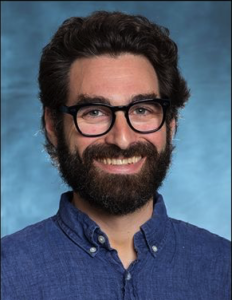 Nuri Friedlander received his PhD from Harvard in the Study of Religion in 2020. HIs dissertation, “Sharpen Your Blade and Put Your Animal at Ease”: Islamic Ethics and Rituals of Killing Non-Human Animals examines premodern Islamic legal discourses on animal slaughter, sacrifice, and hunting. While completing his dissertation, Nuri began teaching in independent schools, first at Phillips Exeter Academy, and now at The Lawrenceville School where he is currently a member of the Religion and Philosophy Department and serves as a “Diversity Coordinator” in the Office of Multicultural Affairs. He continues to engage with themes of animals, law, and religion in the courses he teaches on bioethics and religion and ecology. He plans to rewrite his dissertation as a book in the near future.
Nuri Friedlander received his PhD from Harvard in the Study of Religion in 2020. HIs dissertation, “Sharpen Your Blade and Put Your Animal at Ease”: Islamic Ethics and Rituals of Killing Non-Human Animals examines premodern Islamic legal discourses on animal slaughter, sacrifice, and hunting. While completing his dissertation, Nuri began teaching in independent schools, first at Phillips Exeter Academy, and now at The Lawrenceville School where he is currently a member of the Religion and Philosophy Department and serves as a “Diversity Coordinator” in the Office of Multicultural Affairs. He continues to engage with themes of animals, law, and religion in the courses he teaches on bioethics and religion and ecology. He plans to rewrite his dissertation as a book in the near future.

Chris Green is the Executive Director of Harvard Law School’s Animal Law & Policy Program. He is the former Chair of the American Bar Association’s Animal Law Committee and previously was the Director of Legislative Affairs for the Animal Legal Defense Fund. Green’s own scholarship has focused on the societal and legal value of companion animals and has been published in the Animal Law Review. Chris also recently served on a National Academies of Sciences committee assessing the Dept. of Veterans Affairs’ use of dogs in biomedical research. Chris still regularly testifies at legislative hearings on animal protection matters and he has consulted on animal legal issues for dozens of major media outlets. Green is a graduate of Harvard Law School and the University of Illinois, where he created the college’s first Environmental Science degree. Chris also spent several decades working in the fine arts, film, and music industries, and currently manages an Illinois farm that has remained in his family for 183 consecutive years.
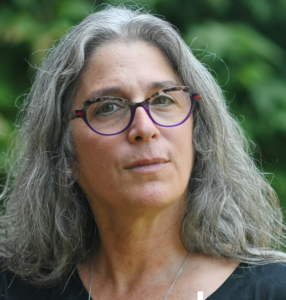 Lori Gruen is the William Griffin Professor of Philosophy at Wesleyan University. She is also a professor of Feminist, Gender, and Sexuality Studies, Science in Society, and coordinator of Wesleyan Animal Studies. She is the author and editor of 11 books, including Entangled Empathy (Lantern, 2015); Critical Terms for Animal Studies (Chicago, 2018) and Ethics and Animals: An Introduction (Cambridge, 2011, second edition forthcoming). Gruen’s work lies at the intersection of ethical and political theory and practice, with a particular focus on issues that impact those often overlooked in traditional ethical investigations, e.g. women, people of color, incarcerated people, non-human animals. Gruen has been involved in animal issues as a writer, teacher, and activist for over 30 years. Her relationships with scholars thinking about animals, activists working to protect animals, and, perhaps most importantly, with many different animals, uniquely inform her perspective on how we need to rethink our engagement with other animals. She has published extensively on topics in animal ethics and ecofeminism and has become known as a bit of an archivist for chimpanzees in the US given her work documenting the history of The First 100 chimpanzees in research in the US (http://first100chimps.wesleyan.edu) and the journey to sanctuary of the remaining chimpanzees in research labs, The Last 1000 (http://last1000chimps.com).
Lori Gruen is the William Griffin Professor of Philosophy at Wesleyan University. She is also a professor of Feminist, Gender, and Sexuality Studies, Science in Society, and coordinator of Wesleyan Animal Studies. She is the author and editor of 11 books, including Entangled Empathy (Lantern, 2015); Critical Terms for Animal Studies (Chicago, 2018) and Ethics and Animals: An Introduction (Cambridge, 2011, second edition forthcoming). Gruen’s work lies at the intersection of ethical and political theory and practice, with a particular focus on issues that impact those often overlooked in traditional ethical investigations, e.g. women, people of color, incarcerated people, non-human animals. Gruen has been involved in animal issues as a writer, teacher, and activist for over 30 years. Her relationships with scholars thinking about animals, activists working to protect animals, and, perhaps most importantly, with many different animals, uniquely inform her perspective on how we need to rethink our engagement with other animals. She has published extensively on topics in animal ethics and ecofeminism and has become known as a bit of an archivist for chimpanzees in the US given her work documenting the history of The First 100 chimpanzees in research in the US (http://first100chimps.wesleyan.edu) and the journey to sanctuary of the remaining chimpanzees in research labs, The Last 1000 (http://last1000chimps.com).
 Dale Jamieson is Professor of Environmental Studies and Philosophy; Affiliated Professor of Law; Affiliated Professor of Medical Ethics, School of Medicine; Associated Faculty, Center for Bioethics, College of Global Public Health; and Director of the Center for Environmental and Animal Protection at New York University. He is a former member of the School of Social Sciences at the Institute for Advanced Study in Princeton, Zurich Distinguished Visitor on Climate Change at the Bren School of Environmental Science and Management at the University of California at Santa Barbara, and the winner of the William R. Freudenburg Lifetime Achievement Award from the Association of Environmental Studies and Sciences
Dale Jamieson is Professor of Environmental Studies and Philosophy; Affiliated Professor of Law; Affiliated Professor of Medical Ethics, School of Medicine; Associated Faculty, Center for Bioethics, College of Global Public Health; and Director of the Center for Environmental and Animal Protection at New York University. He is a former member of the School of Social Sciences at the Institute for Advanced Study in Princeton, Zurich Distinguished Visitor on Climate Change at the Bren School of Environmental Science and Management at the University of California at Santa Barbara, and the winner of the William R. Freudenburg Lifetime Achievement Award from the Association of Environmental Studies and Sciences
Jamieson is the author of Reason in a Dark Time: Why the Struggle to Stop Climate Change Failed–and What It Means For Our Future (Oxford, 2014), Ethics and the Environment (Cambridge, 2008), Morality’s Progress (Oxford, 2002), and most recently, Discerning Experts: The Practices of Scientific Assessment for Environmental Policy (Chicago, 2019),c o-authored with Michael Oppenheimer, Naomi Oreskes and others. He is also the co-author of Love in the Anthropocene(OR, 2015), a collection of short stories and essays written with the novelist, Bonnie Nadzam, and the editor or co-editor of nine books, most recently, Environment and Society: A Reader (NYU, 2017).
Jamieson’s recent work concerns the nature and uses of love, political theory for the anthropocene, the prospects for progressive consequentialism, and the various complex relationships between environmental and animal protection, especially in relation to food and conservation.
 Doug Kysar is Faculty Co-Director of the Law, Ethics & Animals Program, Deputy Dean, and Joseph M. Field ’55 Professor of Law at Yale Law School. He was born and raised in Indiana. Under his mother’s guidance, he developed a love of reading and a love of the more-than-human world. Kysar later studied at Indiana University, where his two loves developed further with guidance from the great nature writer and teacher Scott Russell Sanders. After law school, Kysar began teaching at Cornell Law School and moved to Yale in 2008. Kysar’s work studies the way society utilizes laws and regulations to prevent, manage, and respond to threats of harm to life. He has had a particular focus on climate change law and policy for several years now because climate change will bring harm to life on an almost unimaginable scale.
Doug Kysar is Faculty Co-Director of the Law, Ethics & Animals Program, Deputy Dean, and Joseph M. Field ’55 Professor of Law at Yale Law School. He was born and raised in Indiana. Under his mother’s guidance, he developed a love of reading and a love of the more-than-human world. Kysar later studied at Indiana University, where his two loves developed further with guidance from the great nature writer and teacher Scott Russell Sanders. After law school, Kysar began teaching at Cornell Law School and moved to Yale in 2008. Kysar’s work studies the way society utilizes laws and regulations to prevent, manage, and respond to threats of harm to life. He has had a particular focus on climate change law and policy for several years now because climate change will bring harm to life on an almost unimaginable scale.
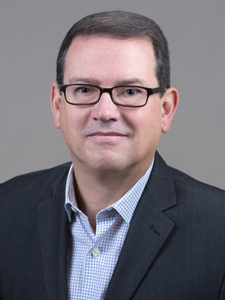 Jonathan Lovvorn is Clinical Lecturer in Law, Senior Research Scholar in Law, and Faculty Co-Director of the Law, Ethics, & Animal Program at Yale Law School. Lovvorn’s teaching and scholarship focuses on the intersection of animal law, environmental law, and food policy, and the search for practical legal solutions that advance diverse public interest causes. He co-teaches the Climate, Animal, Food, and Environmental Law & Policy Lab, which provides a creative space for students, faculty, outside experts, and non-governmental organizations to devise and propagate novel legal and policy strategies to compel industrial animal agriculture to pay the uncounted and externalized costs these operations saddle upon animals, workers, communities, and the environment. He has taught courses on animal and environmental law at Harvard, Georgetown, and NYU law schools, and litigated extensively on behalf of animals and the environment. Lovvorn also serves Chief Counsel for Animal Protection Litigation for the Humane Society of the United States, and as a board member and/or legal advisor to other animal and environmental protection organizations. He holds an LL.M. in Environmental Law from Northwestern School of Law of Lewis & Clark College, and a J.D. from University of California Hastings College of the Law.
Jonathan Lovvorn is Clinical Lecturer in Law, Senior Research Scholar in Law, and Faculty Co-Director of the Law, Ethics, & Animal Program at Yale Law School. Lovvorn’s teaching and scholarship focuses on the intersection of animal law, environmental law, and food policy, and the search for practical legal solutions that advance diverse public interest causes. He co-teaches the Climate, Animal, Food, and Environmental Law & Policy Lab, which provides a creative space for students, faculty, outside experts, and non-governmental organizations to devise and propagate novel legal and policy strategies to compel industrial animal agriculture to pay the uncounted and externalized costs these operations saddle upon animals, workers, communities, and the environment. He has taught courses on animal and environmental law at Harvard, Georgetown, and NYU law schools, and litigated extensively on behalf of animals and the environment. Lovvorn also serves Chief Counsel for Animal Protection Litigation for the Humane Society of the United States, and as a board member and/or legal advisor to other animal and environmental protection organizations. He holds an LL.M. in Environmental Law from Northwestern School of Law of Lewis & Clark College, and a J.D. from University of California Hastings College of the Law.
 Justin Marceau is a Professor of Law and the Brooks Institute Faculty Research Scholar of Animal Law and Policy at the University of Denver. He serves as an inaugural member of the animal welfare committee (PAW) formed by a proclamation of the Governor of Colorado, and he is the recipient of numerous awards, including the Justice for Animals Award and the Colorado Criminal Defense Bar’s Gideon Award. In 2020 he became a member of the American Law Institute.
Justin Marceau is a Professor of Law and the Brooks Institute Faculty Research Scholar of Animal Law and Policy at the University of Denver. He serves as an inaugural member of the animal welfare committee (PAW) formed by a proclamation of the Governor of Colorado, and he is the recipient of numerous awards, including the Justice for Animals Award and the Colorado Criminal Defense Bar’s Gideon Award. In 2020 he became a member of the American Law Institute.
 Timothy Midura is the Executive Director and General Counsel for the Brooks Institute for Animal Rights Law and Policy. A licensed attorney and registered certified public accountant, he brings more than 25 years of legal expertise to his role at the Brooks Institute. He has served on a number of boards of non-profit and professional organizations.
Timothy Midura is the Executive Director and General Counsel for the Brooks Institute for Animal Rights Law and Policy. A licensed attorney and registered certified public accountant, he brings more than 25 years of legal expertise to his role at the Brooks Institute. He has served on a number of boards of non-profit and professional organizations.
Prior to entering private law practice, Mr. Midura was a member of the tax department of a “big four” public accounting firm. His expertise in complex fiduciary (business entity, estate, and trust) planning and administration; charitable gift facilitation and related not-profit organizations; and private foundation matters uniquely qualifies him for his role as President, Executive Director, and General Counsel of the Brooks Institute for Animal Rights Law & Policy, Inc.
Mr. Midura has researched, written, and presented in his legal areas of expertise. He pursues continuing education with a passion and is in a continuous ‘listening tour’ of the animal protection movement. Therefore, Mr. Midura maintains a vantage point and appreciation for cultivating premier educational and research resources.
 Sarah Munoz is a Project Manager, Researcher, and Director of Administration for the Brooks Institute for Animal Rights Law and Policy.
Sarah Munoz is a Project Manager, Researcher, and Director of Administration for the Brooks Institute for Animal Rights Law and Policy.
As Director of Administration, Project Manager, and Researcher, Sarah oversees the planning, monitoring, and fulfillment of a roster of initiatives, projects, and events for the Brooks Institute. These include advancing the Institute’s research, participating in an international ‘listening tour’ attending conferences and conferring with seasoned actors in animal protection, building relationships and collaborative partnerships, and management of sentience and cognition study initiatives, the inaugural Congress and interdisciplinary animal academics studies summit.
Sarah graduated from Northern Illinois University where she studied psychology, knowing she wanted to be a voice for most vulnerable and have a career bettering the lives of others. It was through her rescue, rehabilitation, and rehoming volunteer work with pit bull breed dogs, who she has a particular affinity for, that she realized those for which she wanted to advocate are non-human animals. A naturally inclined vegetarian, education through media and her own research led her to match her behavior to her values and adopt a vegan lifestyle. This was further compounded by the importance she and her family put on health and sustainability.
Prior to the Brooks Institute Sarah had extensive experience in administration at an institutional fixed income investment firm. They worked collaboratively, guided by analytical principles and a vision for long-term strategy to educate community financial institutions regarding strategic planning and balance sheet management. Sarah directly applies this experience to managing projects for the Brooks Institute.
Sarah has always had an affinity and heightened sensitivity towards non-human animals so the opportunity to combine her education, personal passion and professional experience at the Brooks Institute is true providence.
Sarah lives in the Chicago area with her family including her husband, three children, and cat, Buddy. Outside of work and family, she is passionate about fitness, health, and opportunities to advocate for, and volunteer with animals ranging from domestic animals in her community, to exotic animal sanctuaries.
 Janice Nadler is a Research Professor at the American Bar Foundation, and a professor at Northwestern University Pritzker School of Law. I received a J.D. from the University of California at Berkeley, and a Ph.D. in social psychology from the University of Illinois, Urbana-Champaign. My scholarly interests lie at the intersection of law and psychology, and my research focuses generally on social norms, compliance with the law, perceptions of injustice, and public attitudes toward regulation. My current projects include the influence of moral character on judgments of blame, and public opinion about health and environmental risks posed by the contemporary food system. As a social psychologist, I am interested human attitudes toward animals, and I am currently collaborating on an analysis of interventions to reduce meat consumption by appealing to animal welfare.
Janice Nadler is a Research Professor at the American Bar Foundation, and a professor at Northwestern University Pritzker School of Law. I received a J.D. from the University of California at Berkeley, and a Ph.D. in social psychology from the University of Illinois, Urbana-Champaign. My scholarly interests lie at the intersection of law and psychology, and my research focuses generally on social norms, compliance with the law, perceptions of injustice, and public attitudes toward regulation. My current projects include the influence of moral character on judgments of blame, and public opinion about health and environmental risks posed by the contemporary food system. As a social psychologist, I am interested human attitudes toward animals, and I am currently collaborating on an analysis of interventions to reduce meat consumption by appealing to animal welfare.
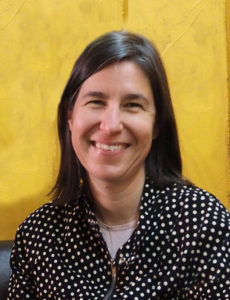 Lana Nadj is an Australian solicitor whose practice has included undertaking policy work for the Law Society of New South Wales, and litigation in the areas of environmental and planning law, and industrial law. She has acted for Commonwealth departments, councils, unions, individuals and corporate clients. Lana has a Master of Laws (University of Sydney) and BA(Hons)/LLB from the Australian National University. Lana also has an editorial background in law and history which has included editing New South Wales judgments for publication in the authorised law reports and assisting three academic works of history to achieve readiness for publication, including undertaking a structural edit of a monograph published by Bloomsbury last year. Lana has worked to support Kristen’s research into animal law, a subject in which she has, over the past five years, developed an avid interest.
Lana Nadj is an Australian solicitor whose practice has included undertaking policy work for the Law Society of New South Wales, and litigation in the areas of environmental and planning law, and industrial law. She has acted for Commonwealth departments, councils, unions, individuals and corporate clients. Lana has a Master of Laws (University of Sydney) and BA(Hons)/LLB from the Australian National University. Lana also has an editorial background in law and history which has included editing New South Wales judgments for publication in the authorised law reports and assisting three academic works of history to achieve readiness for publication, including undertaking a structural edit of a monograph published by Bloomsbury last year. Lana has worked to support Kristen’s research into animal law, a subject in which she has, over the past five years, developed an avid interest.
 Mona Oraby is Assistant Professor of Law, Jurisprudence & Social Thought at Amherst College. Her research sits at the intersection of administrative law, religion, and politics, focusing on group formation and membership. Her first book, How Will We Know Who We Are? Devotion to the Administrative State, is under review. She has been a fellow or visiting scholar at research centers in North America and Europe including the American Bar Foundation (Chicago), the Institute for Critical Social Inquiry at The New School (New York), the Max Planck Institute for Religious and Ethnic Diversity (Göttingen), and the Käte Hamburger Center for Advanced Study (Bonn). As editor of the Social Science Research Council’s The Immanent Frame, she curates interdisciplinary exchanges on secularism, religion, and the public sphere. She also serves as a steering committee member of the Secularism and Secularity Unit of the American Academy of Religion. Her editorial board memberships include Arab Law Quarterly and Middle East Law and Governance.
Mona Oraby is Assistant Professor of Law, Jurisprudence & Social Thought at Amherst College. Her research sits at the intersection of administrative law, religion, and politics, focusing on group formation and membership. Her first book, How Will We Know Who We Are? Devotion to the Administrative State, is under review. She has been a fellow or visiting scholar at research centers in North America and Europe including the American Bar Foundation (Chicago), the Institute for Critical Social Inquiry at The New School (New York), the Max Planck Institute for Religious and Ethnic Diversity (Göttingen), and the Käte Hamburger Center for Advanced Study (Bonn). As editor of the Social Science Research Council’s The Immanent Frame, she curates interdisciplinary exchanges on secularism, religion, and the public sphere. She also serves as a steering committee member of the Secularism and Secularity Unit of the American Academy of Religion. Her editorial board memberships include Arab Law Quarterly and Middle East Law and Governance.
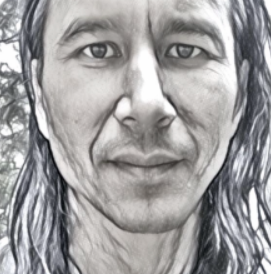 Timothy Pachirat works as an associate professor in the Critical Political Studies Division of the University of Massachusetts Amherst’s Department of Political Science. Pachirat is author of Every Twelve Seconds, Among Wolves, “The Tyranny of Light,” “Dispatches from the Kill Floor,” “The Ethnographer’s Potion,” and “Sanctuary,” among others. Pachirat is a 2020-2021 member of the School of Social Science at the Institute for Advanced Study, Princeton.
Timothy Pachirat works as an associate professor in the Critical Political Studies Division of the University of Massachusetts Amherst’s Department of Political Science. Pachirat is author of Every Twelve Seconds, Among Wolves, “The Tyranny of Light,” “Dispatches from the Kill Floor,” “The Ethnographer’s Potion,” and “Sanctuary,” among others. Pachirat is a 2020-2021 member of the School of Social Science at the Institute for Advanced Study, Princeton.
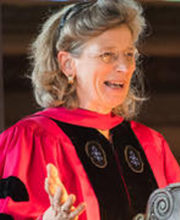 Kimberley C. Patton specializes in ancient Greek religion and archaeology, with research interests in material religion, iconography, sacrifice, and the ecology of Mediterranean sanctuaries. She also teaches and publishes in the history of world religions, particularly ritual studies, animal studies, the mythology of natural elements, sacred art and iconoclasm, the interpretation of dreams, lamentation and weeping, religious laughter, angels and angelology, twins and twinship, childbirth and motherhood, and funerary cult.
Kimberley C. Patton specializes in ancient Greek religion and archaeology, with research interests in material religion, iconography, sacrifice, and the ecology of Mediterranean sanctuaries. She also teaches and publishes in the history of world religions, particularly ritual studies, animal studies, the mythology of natural elements, sacred art and iconoclasm, the interpretation of dreams, lamentation and weeping, religious laughter, angels and angelology, twins and twinship, childbirth and motherhood, and funerary cult.
Her book Religion of the Gods: Ritual, Paradox, and Reflexivity (Oxford, 2009), won the 2010 American Academy of Religion Book Award for Excellence in Religious Studies in the Analytical-Descriptive category. She is also the author of The Sea Can Wash Away All Evils: Modern Marine Pollution and the Ancient Cathartic Ocean (Columbia, 2006). She is editor of, and contributing author to, four other books: with Benjamin Ray, A Magic Still Dwells: Comparative Religion in the Postmodern Age (University of California Press, 2000); with John Stratton Hawley, Holy Tears: Weeping in the Religious Imagination (Princeton, 2005); with Paul Waldau, A Communion of Subjects: Animals in Religion, Science, and Ethics (Columbia, 2006), and (as sole editor), the forthcoming Gemini and the Sacred: Twins and Twinship in Religion and Mythology (I.B. Tauris, Ltd., Bloomsbury Academic, 2020).
Patton’s research on the ritual dimensions of maternal mortality in a Neolithic burial at the site of Çatalhöyük in Central Anatolia, Turkey was published as a chapter co-authored with forensic archaeologist Lori Hager in Religion in the Organization and Transformation of a Neolithic Society: Vital Matters, ed. Ian Hodder (Cambridge University Press, 2014). Out of this work has grown a wider monograph in progress, Our Mothers’ Bones: Religion, Childbirth, and the Myth of Unique Identity, forthcoming in 2022 (I.B. Tauris, Ltd., Bloomsbury Academic).
Patton is involved in the ongoing discussion in the academy of the goals and methods of comparative study. In the Faculty of Arts and Sciences, she serves as a member of the Committee on Degrees in Folklore and Mythology, the Standing Committee on Archaeology, and the joint FAS/HDS Standing Committee on the Study of Religion.
 Asifa Quraishi-Landes is a full Professor of Law at the University of Wisconsin Law School, specializing in comparative Islamic and U.S. Constitutional law, with a current focus on modern Islamic constitutional theory. She is a 2009 Carnegie Scholar and 2012 Guggenheim Fellow. Her recent publications include “Not Your Father’s Islamic State: Islamic Constitutionalism for Today’s Sharia-Minded Muslims,” and “Legislating Morality and Other Illusions about Islamic Government.” She is currently working on a book titled “Islamic Re-constitutionalism,” which presents a non-theocratic and non-secular model of Islamic constitutionalism for today’s Muslim-majority countries. Professor Quraishi-Landes holds a doctorate from Harvard Law School and other degrees from Columbia Law School, the University of California at Davis, and the University of California at Berkeley. She has served as a Public Delegate on the United States Delegation to the United Nations Commission on the Status of Women, the Task Force on Religion and the Making of U.S. Foreign Policy for the Chicago Council on Global Affairs, and as advisor to the Pew Task Force on Religion & Public Life. She currently serves on the governing board of the Section on Islamic Law for the Association of American Law Schools, the Muslim Public Service Network, and Bayan Claremont Islamic Graduate School. She has been a past President and Board Member of NAML (National Association of Muslim Lawyers) as well as Karamah: Muslim Women Lawyers for Human Rights. She is an affiliate of the Muslim Women’s League, a Fellow with the Institute for Social Policy and Understanding and a member of the “Opinion Leaders Network” for the British Council’s “Our Shared Future” project.
Asifa Quraishi-Landes is a full Professor of Law at the University of Wisconsin Law School, specializing in comparative Islamic and U.S. Constitutional law, with a current focus on modern Islamic constitutional theory. She is a 2009 Carnegie Scholar and 2012 Guggenheim Fellow. Her recent publications include “Not Your Father’s Islamic State: Islamic Constitutionalism for Today’s Sharia-Minded Muslims,” and “Legislating Morality and Other Illusions about Islamic Government.” She is currently working on a book titled “Islamic Re-constitutionalism,” which presents a non-theocratic and non-secular model of Islamic constitutionalism for today’s Muslim-majority countries. Professor Quraishi-Landes holds a doctorate from Harvard Law School and other degrees from Columbia Law School, the University of California at Davis, and the University of California at Berkeley. She has served as a Public Delegate on the United States Delegation to the United Nations Commission on the Status of Women, the Task Force on Religion and the Making of U.S. Foreign Policy for the Chicago Council on Global Affairs, and as advisor to the Pew Task Force on Religion & Public Life. She currently serves on the governing board of the Section on Islamic Law for the Association of American Law Schools, the Muslim Public Service Network, and Bayan Claremont Islamic Graduate School. She has been a past President and Board Member of NAML (National Association of Muslim Lawyers) as well as Karamah: Muslim Women Lawyers for Human Rights. She is an affiliate of the Muslim Women’s League, a Fellow with the Institute for Social Policy and Understanding and a member of the “Opinion Leaders Network” for the British Council’s “Our Shared Future” project.
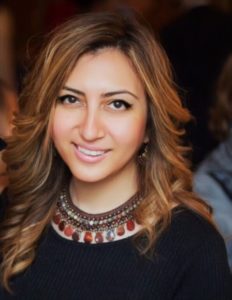
Salma Waheedi is a lawyer specializing in constitutional law and human rights. She is the Associate Director of the Program of Law and Society in the Muslim World, a Lecturer on Law, and a supervising attorney at the International Human Rights Clinic at Harvard Law School. She is also an affiliate of the Middle East Initiative at the Harvard Kennedy School and the Religion and Public Life Initiative at the Harvard Kennedy School. Salma’s work focuses on expanding the rights of vulnerable communities and seeking justice for victims of human rights violations through impact litigation and policy advocacy. Her legal practice covers a number of areas, including gender justice, labor rights, minority right, justice sector reform, and business and human rights, with a focus on the Middle East and North Africa. She also teaches courses on Human Rights Advocacy, Islamic Law, and Islam and Human Rights at Harvard Law School. Her academic research interests include comparative constitutional law, constitutional rights, Islamic family law, and Arab legal history.
 Patricia Sloane-White is a social anthropologist who earned her DPhil at University of Oxford. She is a professor of anthropology and chair of the Department of Women and Gender Studies with joint appointments in Asian Studies and Islamic Studies at the University of Delaware, USA. She has researched Islam, Muslim entrepreneurship, and corporate business in Malaysia for nearly 25 years and has written numerous articles on the Malaysian Muslim middle class, gender, shariah, zakat, and the Muslim workplace. The author of Islam, Modernity and Entrepreneurship among the Malays (Palgrave/Macmillian 1998), her most recent book is Corporate Islam: Sharia and the Modern Workplace (Cambridge University Press, 2017).
Patricia Sloane-White is a social anthropologist who earned her DPhil at University of Oxford. She is a professor of anthropology and chair of the Department of Women and Gender Studies with joint appointments in Asian Studies and Islamic Studies at the University of Delaware, USA. She has researched Islam, Muslim entrepreneurship, and corporate business in Malaysia for nearly 25 years and has written numerous articles on the Malaysian Muslim middle class, gender, shariah, zakat, and the Muslim workplace. The author of Islam, Modernity and Entrepreneurship among the Malays (Palgrave/Macmillian 1998), her most recent book is Corporate Islam: Sharia and the Modern Workplace (Cambridge University Press, 2017).
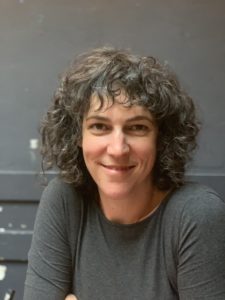 Rebecca J. H. Woods is an historian of science and environment who specializes in the history of animals in the nineteenth century. Woods is an assistant professor, jointly appointed in History and the Institute for the History and Philosophy of Science and Technology at the University of Toronto. Her first book, The Herds Shot Round the World: Native Breeds and the British Empire, 1800-1900 (2017), explored the transformation of sheep, cattle, and colonial environments in Great Britain, New Zealand, and North America. Woods’s current project focuses on the role of frozen mammoth bodies in the formation of paleontological and paleoecological knowledge since 1800. She received her PhD in 2013 from the Massachusetts Institute of Technology, and was a Mellon Postdoctoral Fellow in the Columbia University Society of Fellows in the Humanities from 2013 to 2016.
Rebecca J. H. Woods is an historian of science and environment who specializes in the history of animals in the nineteenth century. Woods is an assistant professor, jointly appointed in History and the Institute for the History and Philosophy of Science and Technology at the University of Toronto. Her first book, The Herds Shot Round the World: Native Breeds and the British Empire, 1800-1900 (2017), explored the transformation of sheep, cattle, and colonial environments in Great Britain, New Zealand, and North America. Woods’s current project focuses on the role of frozen mammoth bodies in the formation of paleontological and paleoecological knowledge since 1800. She received her PhD in 2013 from the Massachusetts Institute of Technology, and was a Mellon Postdoctoral Fellow in the Columbia University Society of Fellows in the Humanities from 2013 to 2016.
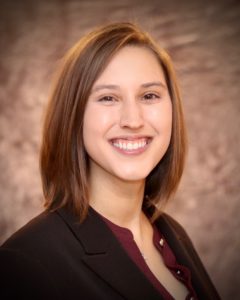 Amanda Yancey is a Project Manager, Researcher, and Systems Directors for the Brooks Institute for Animal Rights Law and Policy.
Amanda Yancey is a Project Manager, Researcher, and Systems Directors for the Brooks Institute for Animal Rights Law and Policy.
Her previous career was in the logistics industry, primarily involved in data analytics, training others on and implementing new worldwide operations systems, and assisting in principal stages of new global initiatives for business processes and system enhancements. When presented with the opportunity to align her professional experience with her personal passion for helping animals, she could not turn away.
Since joining the Brooks Institute in early 2018, Amanda manages the building and implementation of dynamic technology initiatives such as facilitating internal and committee communications, creating and administering the forums, overseeing the web design and development team, and collaborating on all special projects. Some current projects include event management of the inaugural Brooks Congress and interdisciplinary animal academics studies summits, sentience and cognition study initiatives, and advancing the Institute’s research by participating in an international ‘listening tour’ attending conferences and conferring with dozens of seasoned actors in the animal protection community.
Amanda shares her home with her husband, seventeen-year-old stepson, nine-year-old cat, two – three-year-old rescue dogs, and two-year-old son. In her free time, she has volunteered for several years with her local animal shelter, fostered rescue dogs in her home, and has been an advisor and director on the board for the supporting nonprofit of her municipal open-admission animal shelter.
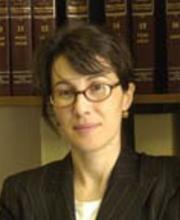 Malika Zeghal is the Prince Alwaleed Bin Talal Professor in Contemporary Islamic Thought and Life in the Department of Near Eastern Languages and Civilization at Harvard University. She is also an Affiliated Professor of Government in the Government Department, and a member of the Committee on the Study of Religion. Her research focuses on the interaction between Islam and politics in the modern Middle East. She is particularly interested in studying the formation of modern Muslim states and their religious institutions, as well as the intellectual and political genealogies of Islamist movements in the region. She also has an interest in modern Islamic intellectual history in the Middle East, Europe and North America.
Malika Zeghal is the Prince Alwaleed Bin Talal Professor in Contemporary Islamic Thought and Life in the Department of Near Eastern Languages and Civilization at Harvard University. She is also an Affiliated Professor of Government in the Government Department, and a member of the Committee on the Study of Religion. Her research focuses on the interaction between Islam and politics in the modern Middle East. She is particularly interested in studying the formation of modern Muslim states and their religious institutions, as well as the intellectual and political genealogies of Islamist movements in the region. She also has an interest in modern Islamic intellectual history in the Middle East, Europe and North America.
An alumna of the Ecole Normale Supérieure de la Rue d’Ulm (Paris, France), Malika Zeghal holds a PhD in Political Science from the Institut d’Etudes Politiques de Paris (1994). Before joining Harvard University in 2010, she was Associate Professor of the Anthropology and Sociology of Religion at the University of Chicago Divinity School. She is a Member of the Scientific Council of the Tunisian Academy of Sciences, Arts and Letters (Beit al-Hikma).
Malika Zeghal has published a study of the Egyptian ulama of al-Azhar since the 1950s and of their various forms of engagement with politics (Gardiens de l’Islam. Les oulémas d’al-Azhar dans l’Egypte contemporaine [Presses de Sciences Po, 1996]). She has also published a volume on Islam and politics in contemporary Morocco (Islamism in Morocco: Religion, Authoritarianism, and Electoral Politics [Markus Wiener, 2008]), which highlights in particular the role of Shaykh Yassine’s political mysticism in the Islamist political opposition to the Moroccan monarchy, and has won the French Voices-Pen American Center Award. She has also edited a special issue of the Revue des Mondes Musulmans et de la Méditerranée, Intellectuels de l’islam contemporain. Nouvelles générations, nouveaux débats [123, 2008], on contemporary liberal Muslim thought. She is currently working on a book on Islam and the state in the Arab world in the modern period (19th-21th century), forthcoming at Princeton University Press.
With a team of graduate students in NELC, she is currently building a digital map of Islamic intellectual networks in the Maghrib and Egypt in the 1920s and 1930s. This project, called Afkar, is supported by a Grant from the Lasky-Barajas Dean’s Innovation Fund for Digital Arts and Humanities.
You can read her blog at https://onislamandpolitics.wordpress.com/
